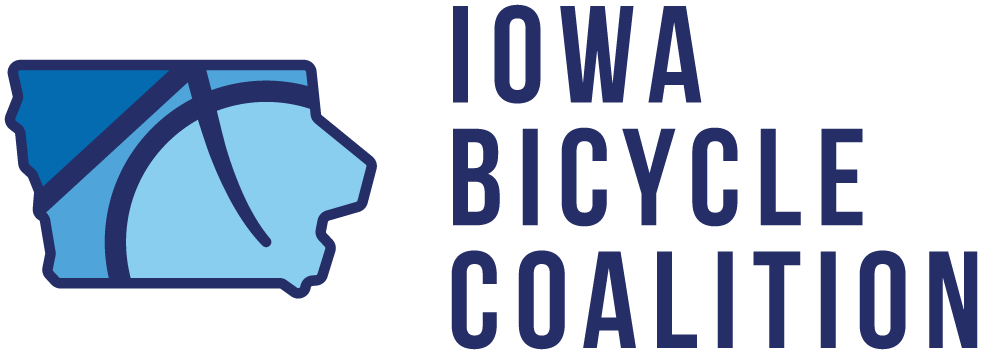 Last week, in partnership with the Sierra Club, the League released “The New Majority: Pedaling Toward Equity.” A conversation-starter, rather than a comprehensive analysis, the mini-report highlighted the tremendous growth in bicycling among youth, women and people of color — and showcased the stories of just a small handful of grassroots organizations that are mobilizing diverse communities and elevating new leaders.
Last week, in partnership with the Sierra Club, the League released “The New Majority: Pedaling Toward Equity.” A conversation-starter, rather than a comprehensive analysis, the mini-report highlighted the tremendous growth in bicycling among youth, women and people of color — and showcased the stories of just a small handful of grassroots organizations that are mobilizing diverse communities and elevating new leaders.
But, while the report provided evidence that we’ve begun pedaling toward equity… we’re not nearly there yet.
“For too long,” we emphasize, “many diverse populations have been overlooked by traditional organizations and transportation planners. In too many instances, people of color have been largely left out of transportation decision-making processes that have dramatically impacted their neighborhoods. Rising up in response to this disenfranchisement, new leaders are rallying against stark disparities in bicycling facilities — and safe streets. These organizations aren’t just engaging new communities in traditional campaigns, but opening new avenues of conversation — shifting the focus from bicycling itself to how bikes address the core everyday issues faced in their unique communities.”
That said, as Hamzat and I wrote in an opinion piece for the Atlanta Journal-Constitution this week, there are great examples of advocacy organizations that are partnering with other community-based groups and residents in under-served areas to advance bike equity. Here are just a few examples that we’ve showcased recently on our blog and in our magazine.
We want to hear from you, too: Share what you’re doing by filling out our brief “Women & Equity Survey” here.
Atlanta Bicycle Coalition + Red, Bike & Green = Better Bike Infrastructure
When the City of Atlanta first outlined its ambitious streetcar project, there was a glaring blind spot. Despite being one of the most historic African-American business districts in the country, Auburn Avenue was slated for a mere three blocks of bike lanes in the multi-modal proposal. In response, local organizations Red, Bike and Green, the Atlanta Bicycle Coalition and SOPO Bicycle Cooperative worked with supportive council members like Aaron Watson to put pressure on local leaders and organizied the Tour de Sweet Auburn bike ride, highlighting the district’s cultural significance and uniting neighbors and business leaders behind the push for better bike access. The event and resulting petition engaged voices usually absent in bicycling advocacy — and soon the City of Atlanta indicated it would include additional bike lanes along the Auburn Avenue corridor.
Read more about the campaign here.
Transportation Alternatives + Recycle-a-Bicycle + 7 Diverse Non-profits = Local Spokes
Local Spokes is a coalition of nine diverse non-profits based in New York City’s Lower East Side and Chinatown. “Local Spokes was formed in response to a perceived lack of community involvement in the planning process around the growing bicycle movement in New York City, particularly among low-income residents, people of color, immigrant communities, and youth,” two key organizers explained on the League blog and in our magazine last year. “Our coalition was created with intention, in an attempt to add new voices to neighborhood bicycle advocacy in NYC, and to do so by ensuring that community-based organizations are the leaders in the local conversation about expanding bicycling. This means that rather than speaking about and advocating for bicycling itself, bicycling gets discussed in the context of other neighborhood concerns like affordability, housing, health, immigration rights, job training and community empowerment.”
Read more about the campaign here.
Community Cycling Center + Hacienda Community Development Corporation = Andandos en Bicicletas en Cully
In 2008, the Community Cycling Center, a community bike shop in Portland, began to seek ways to engage partner communities to influence future bicycle investments to benefit all Portlanders. In conducting a community-based needs assessment — Understanding Barriers to Bicycling — and an organizational equity audit, the Center’s work fundamentally shifted. “Now we focus programs with strategic partners and work in collaboration with residents to develop community-based initiatives that overcome the barriers to bicycling,” Alison Graves, then the executive director of the CCC, wrote in the League magazine in 2012. “One partner, Hacienda Community Development Corporation, builds dignified, affordable housing for immigrant families. In 2009, when we completed focus groups at Hacienda, secure bike storage was the primary barrier to bicycling. In 2010 we formed a bike committee comprised of residents who named themselves Andando en Bicicletas en Cully (ABC), which translates to ‘Riding Bikes in Cully.’”
Read more about the campaign in the League magazine here and download the CCC’s report about the project here.
Of course, there are plenty of other examples, like the Better Blocks campaign from the Active Transportation Alliance in Chicago, and the East of the River campaign from the Washington Area Bicyclist Association. How is your organization working with new partners to address and advance bicycling equity in your community? Share your work in our survey — so we can share your success with others!
And, if you haven’t already, download “The New Majority: Pedaling Toward Equity” and stay tuned for continued conversation on this important topic!

Carolyn Szczepanski
Communications Director
Carolyn joined the League in March 2012, after two years at the Alliance for Biking & Walking. In addition to managing the League’s blog, magazine and other communications, Carolyn organized the first National Women’s Bicycling Summit and launched the League’s newest program: Women Bike. Before she crossed over to advocacy, she was a professional journalist for nearly 10 years.
via Bikeleague.org Blog http://blog.bikeleague.org/blog/2013/06/advocates-and-equity-3-success-stories/




